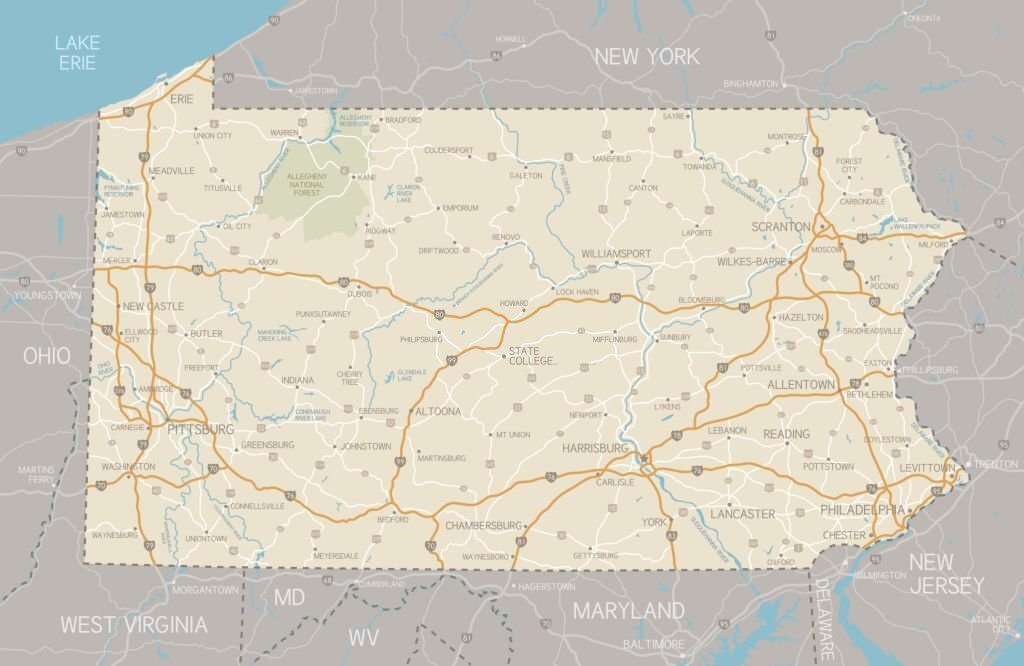Gillian McGoldrick and Trebor Maitin
The Philadelphia Inquirer
(TNS)
Pennsylvania lawmakers on Thursday approved a $47.6 billion state budget deal after weeks of negotiations, featuring sweeping changes to the higher education landscape and how the state funds its public schools.
Pennsylvania increased spending for K-12 public schools by more than $1 billion in the next fiscal year, including several new initiatives to help all of the state’s school districts offer their students an equitable and adequate education. The full budget deal includes less spending than Gov. Josh Shapiro asked for earlier this year, and invests less than what public education advocates had said was necessary to bring tangible change to underfunded schools, but that leaders said Thursday is a significant down payment.
Overall, the state will increase spending by 6.2%, or $2.72 billion, over last fiscal year, according to the budget unveiled Thursday.
“People always say, ‘historic,’” said state Rep. Jordan Harris, a Democrat, who chairs the House Appropriations Committee and negotiated the budget deal. “No, this is historic.”
Top legislative leaders in the Democratic-controlled House and GOP-controlled Senate, as well as Shapiro, a Democrat, negotiated the deal behind closed doors with little public disclosure about what — and how much — leaders would be willing to spend on education increases. Pennsylvania is currently sitting on a more than $15 billion surplus, built up by COVID-19 relief funds and higher-than-expected revenues.
In the end, leaders agreed to dip into state coffers to spend more than $3 billion over projected revenues, as the state is set to outspend its revenues this year and future years.
Among the major changes to higher education include the creation of a new higher education board and two new scholarship programs intended to plug Pennsylvania’s “brain drain” and populations. The new scholarship programs include a merit scholarship for out-of-state students attending Pennsylvania schools and a $5,000 annual scholarship for students who promise to finish their degrees and take “in-demand” jobs in Pennsylvania after graduation for every year they take the scholarship.
“We have been focused on what we can do to turn around that lagging economy and turn around Pennsylvania’s demographic decline,” said GOP state Sen. Scott Martin, the chair of the Senate Appropriations Committee, during his floor remarks. “The planting of seeds to move us in that direction will be reaped in future years.”
The budget was due by July 1, when the new fiscal year began. Its lateness had little effect on state operations. The main spending bill and its accompanying code bills that define how the state can spend its money were on their way to Shapiro’s desk for his signature Thursday night, after being fast-tracked through the legislature.
“We’re feeling good, we’re gonna have a busy day and we can talk about specifics later,” Shapiro told The Inquirer in the state Capitol hallway Thursday afternoon, before parts of the budget were unveiled during a legislative committee hearing.
Lawmakers agreed to create dozens of new initiatives — from a $20 million program to promote Pennsylvania’s Main Streets, to $2.5 million for emergency housing supports, to $56.5 million in violence intervention and prevention grants — all intended to improve the lives of the state’s residents.
However, there were shortcomings in the budget deal, according to advocates that had spent months lobbying their lawmakers to ask for critical investments.
For example, SEPTA did not get the promise of a dedicated funding stream, as requested by the transit system. Instead, they set aside $53 million in onetime funds. Public education advocates who won a landmark case also didn’t get as much funding or a multiyear promise they said were necessary, and warned they would go back to court if leaders don’t take the issue seriously in future budgets.
Democratic and Republican leaders emphasized that the state budget does not achieve everything they had wanted, but is a reality of governing in a divided government, with one party controlling the House and another controlling the Senate. Pennsylvania is the only state with a divided legislature.
“This is not a perfect product. This is not a perfect budget,” said GOP Senate Majority Leader Joe Pittman. “This is a product of divided government.”
Education funding was the biggest sticking point going into budget negotiations after the state Commonwealth Court ruled Pennsylvania’s education system unconstitutional last year, finding that it discriminates between poor and wealthy school districts. More than $1 billion in new funding for K-12 education ultimately made it into the budget, which Harris called “a good down payment on what is necessary for education in the commonwealth of Pennsylvania.”
Public education advocates had asked that Pennsylvania pour $850 million in new basic education funds for K-12 schools this year into the more than $7.9 billion the state already spends on it, in order to fulfill the Commonwealth Court’s mandate. Instead, only $500 million of the $1 billion new education funding will go toward that purpose. Those advocates, who led the effort to sue the state over its current funding system, warned Wednesday that they would consider filing another lawsuit if the budget didn’t address their concerns.
“Students need public schools that provide the support they need to reach meaningful opportunities today, not some day in the far future,” wrote leaders from the Education Law Center and Public Interest Law Center, who won the landmark case. “And the same budget legislation that admits the scope of the Commonwealth’s constitutional shortfall still leaves nearly 90 percent of that hole to be filled by some undefined date in the future, or not at all.”
©2024 The Philadelphia Inquirer. Visit inquirer.com. Distributed by Tribune Content Agency, LLC.
Thanks for reading CPA Practice Advisor!
Subscribe Already registered? Log In
Need more information? Read the FAQs




